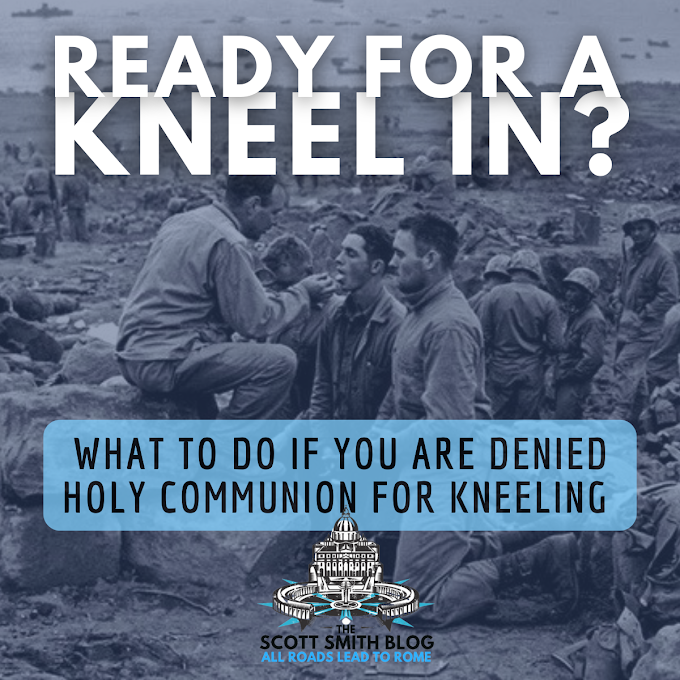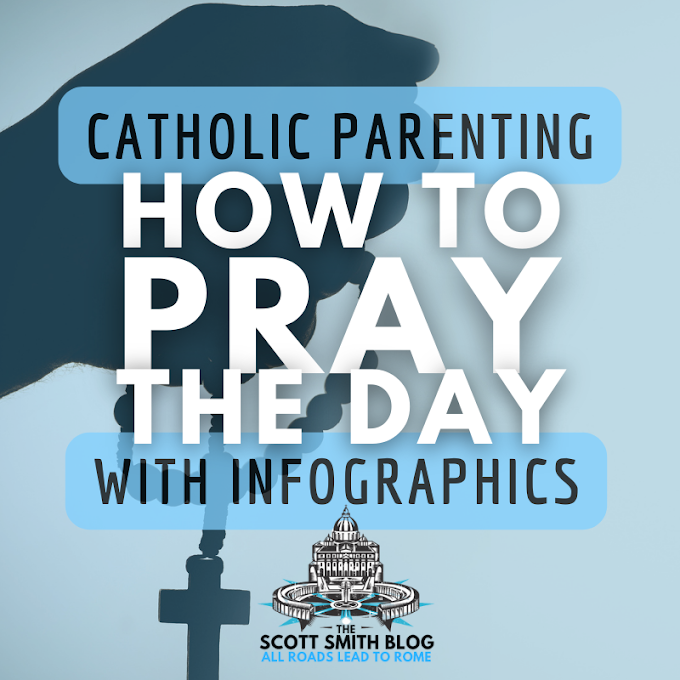I was just talking to a man about cremation as he was coming out of the Adoration Chapel. He admitted that he hoped to be cremated. Isn't that ironic? You just left a chapel dedicated to adoring Christ's resurrected body, and you hope to turn your own into ashes?
Here's what the Catholic Catechism says about cremation: "The Church permits cremation, provided that it does not demonstrate a denial of faith in the resurrection of the body" (CCC 2301).
The preceding paragraph, however, says this: "The bodies of the dead must be treated with respect and charity, in faith and hope of the Resurrection. The burial of the dead is a corporal work of mercy; it honors the children of God, who are temples of the Holy Spirit."
Ultimately, I think cremation represents no less than the rejection, i.e. "burning", of some of the Church's most important teachings: the Theology of the Body; the Imago Dei, that we are created in the "image of God"; our bodies as Temples of the Holy Spirit; and, perhaps most directly, the Resurrection of the Body.
What is the State of Cremation Today? How Many People Are Opting Out of Traditional Christian Bural?
Cremation is pretty common. Rates of cremation, as opposed to burial, are only increasing, especially given the costs of land, casket, and body preparation. As will be discussed later, several of these costs are unnecessary.According to the National Funeral Directors Association's 2015 "Cremation and Burial Report," cremation was the "method of disposition" for 32.3% of deaths in 2005. This number rose to 40.4% by 2010 and 45.4% in 2013. It is projected that 71.0% of Americans will choose cremation by 2030. Basically, the tradition of burial will evaporate in the coming years except for people choosing burial on religious grounds.
I think the growing popularity of cremation is a reaction to the indignity (and expense) of embalming, wherein the body is injected and filled with chemicals which will likely ultimately infiltrate the water supply. There is also the expense of embalming added to the expense of a casket, though typically there is a casket involved in both cremation and embalming.
So, is it either cremation or embalming? This is just another false dilemma. Cremation and embalming are not the only options. Why not just anoint the body as they did Christ's? If there's no need to transport the body across the globe, why are we preserving it in this radically, unnaturally way?
Smoke Gets in Your Eyes & Other Lessons from the Crematory
I heard an NPR interview of former crematorium employee Caitlin Doughty. Doughty wrote Smoke Gets in Your Eyes, a book about her experiences in the crematorium and the growing movement of DIY (do-it-yourself) burials.SIDENOTE: Don't you love it when the naturalist/organic/environmentalist movement(s) inadvertently adopt ancient and/or Judeo-Catholic ideas?
Ms. Doughty spoke about the loneliness of the crematory. She said there was rarely anyone present for the casket's entry into the furnace. There is typically a viewing window in place for family and friends, but it's never used.
This highlights the larger problem with cremation, Doughty explained. There's no saying of goodbyes. The grief process becomes disjointed and stilted. Far better it is, she inadvertently advocates for the ancient Jewish and Christian practice, to prepare the body at home and to say good-byes there, as well.
Even though it may seem icky or even horrific to touch a dead body, human touch is as essential in death as it is in life. The Culture of Death, seemingly paradoxically, shuts the dying process away behind closed doors and lonely crematoriums. Our humanity cries out for more.
As for me, a pine box will do just fine -- maybe Louisiana cypress, instead. But please, anoint my body, as it was anointed at Baptism and Confirmation and as Christ's body was anointed.
Cremation & Theology of the Body
Do you not know that your body is a temple of the Holy Spirit within you, which you have from God? You are not your own; you were bought with a price. So glorify God in your body. (1 Corinthians 6:19-20)
We are temples of the Holy Spirit, for God's sake. Don't burn down this temple when you die. (Better not to fill it with formaldehyde and methanol, either.)
What's the difference? We're just going to rot away to dust, anyway, right? Don't we say "Ashes to ashes, dust to dust"? There is a fundamental difference between letting nature take its course and violent intervention in this process. St. Joan of Arc may have been reduced to ashes, but she bore these wounds for God. It was a violence done against the dignity of her body. She did not choose to become ashes. Her final act on earth was not the desecration of her body.
Jesus' resurrected body, his glorified body, looked as it did when he was buried. He bore all the wounds of his crucifixion, all the wounds he suffered for love, namely love of God.
The Language of the Body: What Are We Saying With Our Bodies in Cremation?
Think of the affront to the Eucharist made by cremation. If we eat the Eucharist and it becomes a part of us on the molecular level, what then are we cremating?We are created by God in His image and likeness. If our bodies bear the image of God, what are we burning? We won't burn a flag, which is just a symbol, but we will burn the image of God?
Ultimately, it's an act of dualism, which represents a rejection of the Theology of the Body. There is unity between body and soul. If we choose for our bodies to burn, are we deciding ultimately that are souls will as well? If we want to return to God when we die, we should want our souls and our bodies going to the same place. Nature is God's creation, so we should let our bodies return to nature and by natural processes.
Here's the crux of the matter: We experience God in Heaven, bodily. Our bodies will be resurrected!! If we believe in the Resurrection, we believe in a bodily resurrection. That means we will experience God, even in Heaven, through our bodies. A pile of ashes is incapable of sensation. Ashes can't feel. They can only be blown away. Ashes can't hug. They can't kiss. They certainly can't see or smell. So what will Heaven look like to ashes?
What, then, should we do?
Why not follow in Christ's footsteps? How was Christ's body treated by his loved ones once he was taken down from the Cross? Was he secreted away to Daniel's fiery furnace? No, he was placed in the arms of his mother. The Blessed Mother wanted -- needed-- one last embrace. Then, it was wrapped in a "clean linen cloth" and "laid" in the tomb. Using the verb "laid" reveals a much more personal action, as with pall-bearing and very unlike being carried on a conveyor belt into an incinerator. His body was likely also anointed with sweet-smelling oils, giving the whole process a sacramental nature.
Here is an interesting article on Jewish burial customs, which have remained remarkably constant throughout the last several thousand years.
Catholics & Cremation: Burying the Dead is a Corporal Work of Mercy
Lastly, a proper burial is not merely required by our humanity and by the grieving process, burying the dead is a Corporal Work of Mercy. Honoring the dead teaches us to honor the living.This is never so true as it is with abortion. Aborted babies are often treated as medical waste and disposed of accordingly. Much more could be written on this topic alone.
The way we dispose of these aborted children of God says quite a lot about how we view them in the first place. I'll end with this thought: What might cremation say about our understanding of the human person?











3 Comments
We list it on our website > > > www.Gods-Catholic-Dogma.com
The Dogmas have in fact ... been hidden from you.
The Catholic God knows . . . what we think and believe . . .
Catholic writing of Romans 1:21 >
"They ... became vain in their thoughts, and their foolish heart was darkened."
Catholic Faith (pre-fulfillment) writing of Job 21:27 >
"Surely I know your thoughts, and your unjust judgments against Me."
The fact that "islam" is not a religion is on Section 113.1 of the site. Mohammed in the "koran" wrote exactly the opposite of the Old Testament Prophets.
Proverbs 30:4 > "Who hath ascended up into Heaven ... what is the name of His Son."
koran - maryam 19:35 > "It is not befitting ... Allah that He should beget a son."